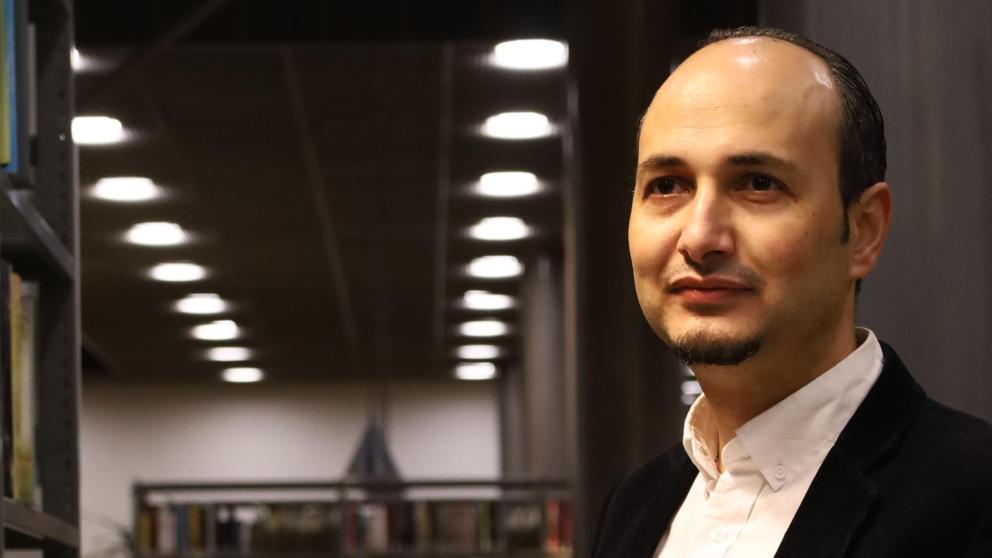Dissertation: Refugee perspective on the Finnish integration programme: Measures are fine, implementation not

In 2015–2016, the number of asylum seekers in Finland increased rapidly. Around 38,000 asylum seekers flocked to Finland. The Sipilä government responded to this challenge and launched a new integration programme for 2016–2019. The Parliamentary Audit Committee later declared that the integration policy was not working, and new solutions were needed.
According to Moussa Ahmad’s doctoral dissertation, taking into account the perspective of the customer, the refugee, could help in designing new measures and policies. Although refugees are the key users of integration services, they do not have much of a say in integration decision-making and their feedback does not reach the decision-makers.
“Most of the refugees who were surveyed strongly agreed with the measures of the Finnish integration programme. The problem is not with the programme itself, but with its different priorities between refugees and the government, and in the implementation of the Finnish integration measures,” says Ahmad.
According to the dissertation, government policies related to family reunification and citizenship requirements have had a negative impact on integration and the success of the Finnish integration programme by changing the new life path of refugees in Finland for a long time and with high costs.
In order to obtain Finnish citizenship, some refugees are forced to become language skills demonstrators instead of language learners, he says. Ahmad says that the Dutch dispensation model regarding language requirements for naturalisation should be adopted in Finland.
The study also found that the so-called carrot and stick policy was being misused. For example, in Finland, refugees who study hard are punished by cutting much-needed support.
It was also rare to guide foreigners to employment services with high employment outcomes. This was also true in Ahmad’s own situation many years ago and, according to the refugees interviewed, it can be so today.
“I am a Palestinian who came from Syria to Finland in 2009. At the time, like many other immigrants, I found it difficult to enter the Finnish labour market. A study instructor instructed me to start from scratch and study to become a practical nurse, even though I had a Master’s degree from France and international work experience in several positions, such as a national expert for UNIDO.”
Ahmad was subsequently accepted for postgraduate studies at the University of Vaasa. At the same time, he has been working in the Employment and Economic Development Office on the integration of immigrants. He is currently a coach at Ohjaamo, a counselling service for young people.
In his dissertation, he proposes a golden hour strategy for integration, new paths for immigrants and a one-stop guidance centre for integration services.
The golden hour is a familiar concept in crisis situations and medical care. The first 60 minutes determine how the situation can be treated. It is, for example, the time when a patient should be admitted to hospital after an injury. In integration, a golden hour would also mean a faster response. For example, instead of sequencing services, they could be offered simultaneously – for example, language training in the morning and work trial in the afternoon.
He also proposes designing an Integration One-Stop Guidance Centre or Integration House (Koto-talo/Koto-ohjaamo). It would integrate social services for refugees into a One-Stop Guidance Centre. It could help the refugees in the same way as Ohjaamo helps the young people. Counselling would be available in one place.
Doctoral dissertation
Ahmad, Moussa (2021) Developing Integration by evaluating Government Program for 2016–2019: Propositions for Decision Makers. Acta Wasaensia 471. Väitöskirja. Doctoral dissertation. Vaasan yliopisto. University of Vaasa.
Publication pdf: http://urn.fi/URN:ISBN:978-952-476-969-3
Public defence
The public examination of M.Sc. Moussa Ahmad’s doctoral dissertation "Developing Integration by evaluating Government Program for 2016–2019 : Propositions for Decision Makers" will be held on Friday 3 December at 12 at the University of Vaasa (Auditorium Nissi).
It is also possible to participate in the event online: https://uwasa.zoom.us/j/68177261311?pwd=cXFHWmZwOGJJeDBmWCtFT1VSekJ6QT09
Password: 088014
Docent, D.Soc.Sc. Pekka Kettunen (Migration Institute of Finland) and Docent , PhD, D.Sc. Teppo Sintonen (University of Jyväskylä) will act as an opponent and Docent, D.Sc., MSSc. Raine Hermans as custos.
Further information
Moussa Ahmad, tel- +358 45 139 0850, email: moussa.ahmad.82 (@) icloud.com